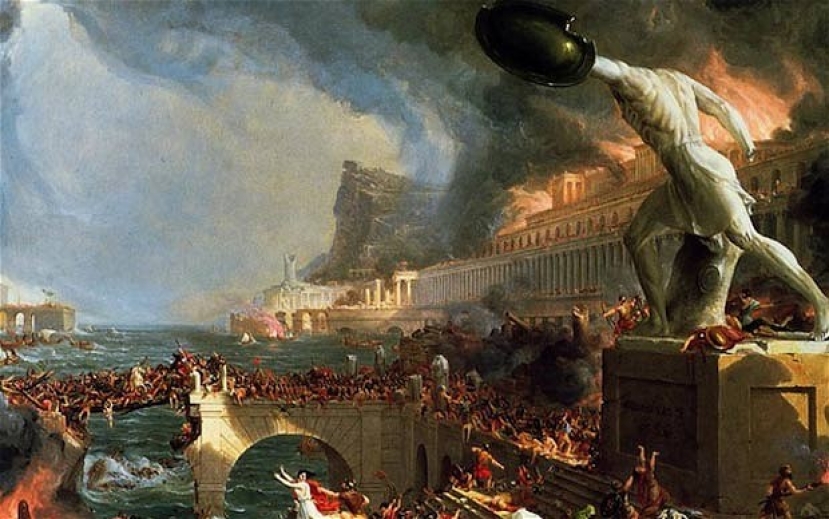Our spoiled, emasculated, de‑spiritualised societies in the West are in terminal decline
29.01.2016 16:14
 Our spoiled, emasculated, de‑spiritualised societies in the West are in terminal decline
Our spoiled, emasculated, de‑spiritualised societies in the West are in terminal decline
In 2015 we witness a rare geopolitcal power shift - and in the face of every kind of new external challenge the leaders of the EU and the USA have never looked weaker or more bemused.
As we enter this new year, what is the most significant feature of how the world is changing that went almost unnoticed in the year just ended? Two events last autumn might have given us a clue.
One was the very peculiar nature of that state visit in October, when the president of China was taken in a golden coach to stay at Buckingham Palace, down a Mall lined with hundreds of placard-waving pro‑China stooges, while the only people manhandled away by Chinese security guards were a few protesters against China’s treatment of Tibet and abuses of human rights.
Led by David Cameron, our politicians could not have fawned more humiliatingly on the leader of a country whose economy, before its recent wobbles, was predicted by the IMF to overtake that of the US as the largest in the world in 2016. While Britain once led the world in steel‑making and the civil use of nuclear power, the visit coincided with the crumbling of the remains of our steel industry before a flood of cheap Chinese steel, as our politicians pleaded for China’s help in building, to an obsolete design, the most costly nuclear power station in the world.
Three weeks later came the rather less prominent visit of Narendra Modi, prime minister of India, whose even faster-growing economy is predicted by financial analysts to become bigger than Britain’s within three years, and to overtake China’s as the world’s largest in the second half of the century.
What we were seeing in 2015, more than ever before, were the signs of one of history’s great geopolitical shifts, as the centuries-old hegemony of the West gives way to the new powerhouses of the outside world.
In the face of every kind of new external challenge, the leaders of the EU and the USA have never looked weaker or more bemused – as over how to deal with the flood of refugees and the terrorist threat unleashed from a Middle East reduced to chaos by our vainglorious interventions in Iraq, Afghanistan and Libya. Never have our politicians and political institutions been held in less respect.
Everywhere we see Western illusions colliding with reality, as when the reckless bid to suck Ukraine into the EU and Nato inevitably provoked a response from President Putin and a Russian sense of national interest that has left us looking pathetically impotent. Likewise, in his support for Syria’s President Assad, Putin has run rings round the West, just as the murderous regime in Iran ran rings round us in that recent “nuclear deal”, so meaningless that Iran’s “moderate” President Rouhani never even bothered to sign it, almost immediately authorising two illegal tests of nuclear-capable missiles, knowing that no action from the West would follow.
We then saw that even more meaningless “non-binding” deal in Paris, supposed to save the world from global warming. The very fact that it was the West that had dreamed up this scare in the first place was yet another symptom of how easily we fall for illusions; and again it was the outside world, led by China and India, that refused to buy such nonsense.
We might well be haunted by the brilliant title of that otherwise not very good book written by Otto Spengler in the Twenties, Der Untergang des Abendlandes (The Decline of the West). All civilisations, as we know, eventually decline, and Spengler’s title was just 90 years ahead of its time.
The reason why we do not see just how far our spoiled, emasculated, de‑spiritualised societies in the West have lost the plot is that they are the bubble we live in. But these days there is a great big world out there, much less sentimental and much tougher than what we have become used to. Over the coming years, our world is going to change more than we can imagine.
